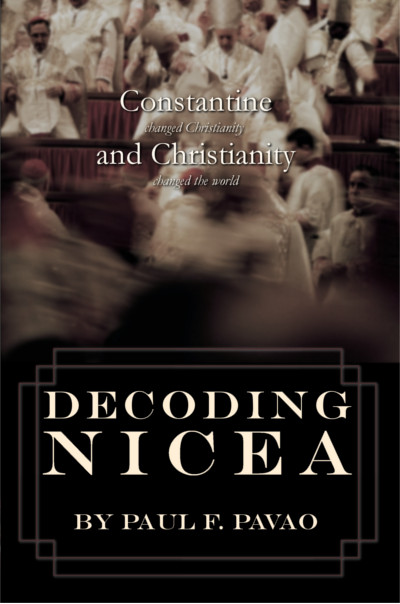FAQ: How to Start Reading the Early Church Fathers
Today I was asked one more time how to start reading the church fathers. Here's the answer I gave to the person who emailed m..
Ad:
Our books consistently maintain 4-star and better ratings despite the occasional 1- and 2-star ratings from people angry because we have no respect for sacred cows nor the traditions of men.
You should begin by actually reading just a few very early writings, not just a book about them. I remember Penguin Publishing used to have a paperback edition called Apostolic Fathers that was inexpensive. (As of June 2, 2025, they still do). Completely free would be to read those same writings online at earlychristianwritings.com.

Go to that website and search (using ctrl + f, not the search box at the top) for "Polycarp." Click on Polycarp to the Philippians. There will be a list there. I think J.B. Lightfoot's translation will always be easiest to read. Before you read it, though, click on one of the introductions just below it. Polycarp was the bishop of Smyna, and he wrote that letter to the Philippians—yes, the same church Paul wrote to but at least 50 years later. No one knows the exact date, but Polycarp was bishop of Smyrna from around the year 100 until he was martyred around AD 150.
After that, go back to the list and search for Diognetus. That web site calls that letter "Mathetes' Epistle to Diognetus," but the letter is anonymous. "Mathetes" is the Greek word for disciple. You will love, love, love that letter. The date of that letter is very unsure, but it is great.
After that, search for 1 Clement. That's a letter from the church in Rome to the church in Corinth, and the date is either around AD 81 or around AD 95-96. Those were two times of heavy persecution in Rome, and we know the letter was sent at a time of duress. The letter is named 1 Clement because there was a manuscript that attributed it to Clement of Rome. No one doubts Clement wrote it on behalf of the church. Clement was either one of the elders in Rome, which is what I believe, who was the official messenger for the church, sending and receiving letters. The Roman Catholic and Orthodox churches claim he was a bishop, but the evidence that Rome did not have a bishop yet and was instead run by a group of elders, is very strong.
After that, read the Didache.
Another great and very easy read is Will the Real Heretics Please Stand Up by David Bercot. The first 10 to 12 chapters are the most important. He wrote the last 8 chapters in 1989 as a Protestant. Then he changed those last 8 chapters when he became a priest in the Anglican Church in the early 90s. Then he changed them again when he joined a Mennonite church around the year 2000. The last 8 chapters are just opinions that have changed depending on which church he was part of. The ones before that, though, are great. That book helped me find the early church fathers back when it came out in 1989, and it prompted a revival of reading the church fathers among Protestants and the Mennonites.
If you read all of those, write me again, and I will try to help guide you forward inexpensively and help you avoid the huge books that can be tedious to read. (Since this is now on the internet, I am speaking of The Demonstration of the Apostolic Preaching by Irenaeus, which is much shorter than his 5-volume tome, Against Heresies, and the two writings in the next paragraph).
Another longer and pleasant read is Justin's "First Apology," which is available at the same site. On the other hand, David Bercot shortened Justin's First Apology and put it in modern English in a book titled We Don't Speak Great Things, We Live Them. That title comes from Minucius Felix's debate called "The Octavius." The Octavius is also in that book, and those two early writings are a delight to read and teach a lot about early Christian thinking. In fact, the best shortened version of "The Octavius" is right here on this site!


